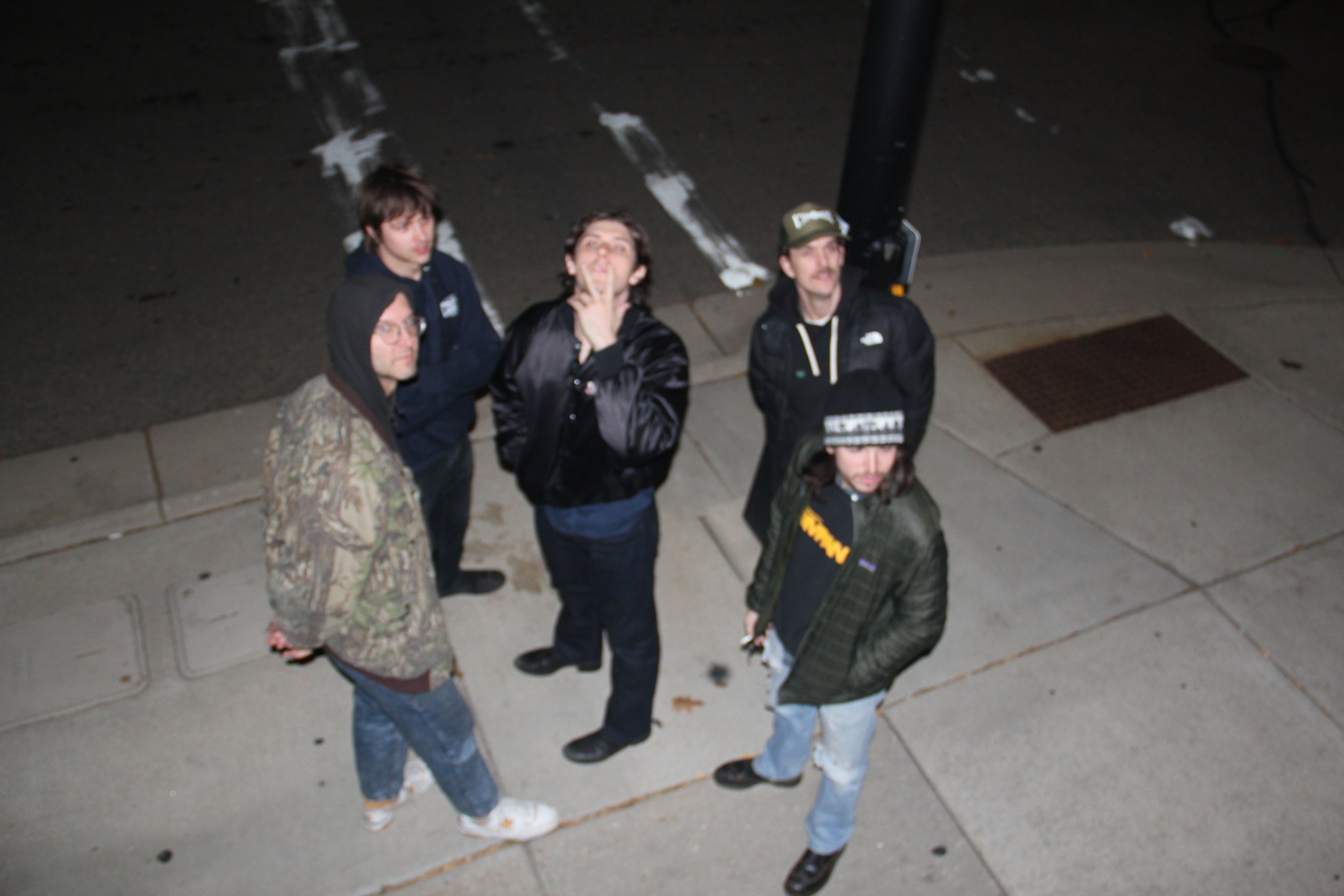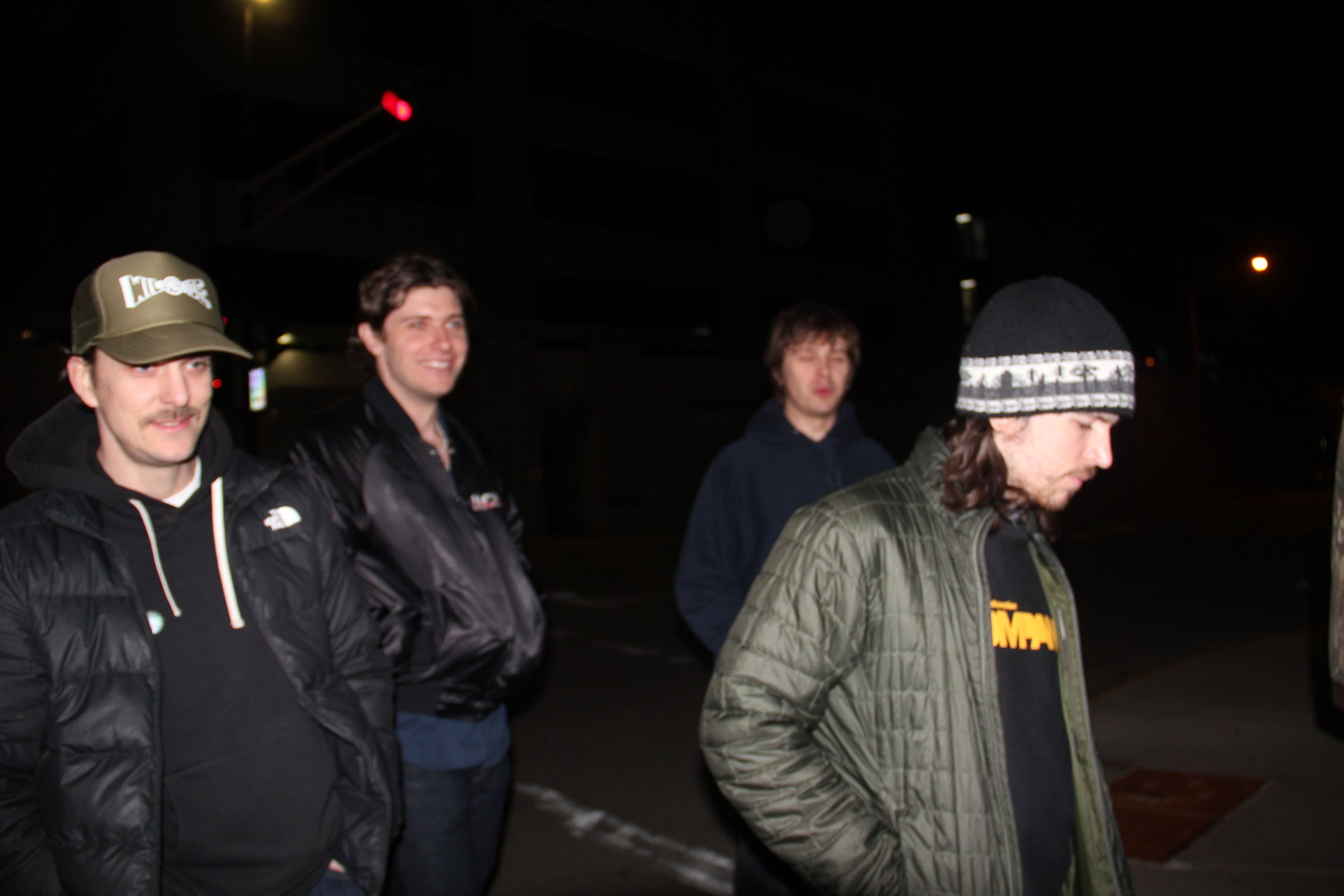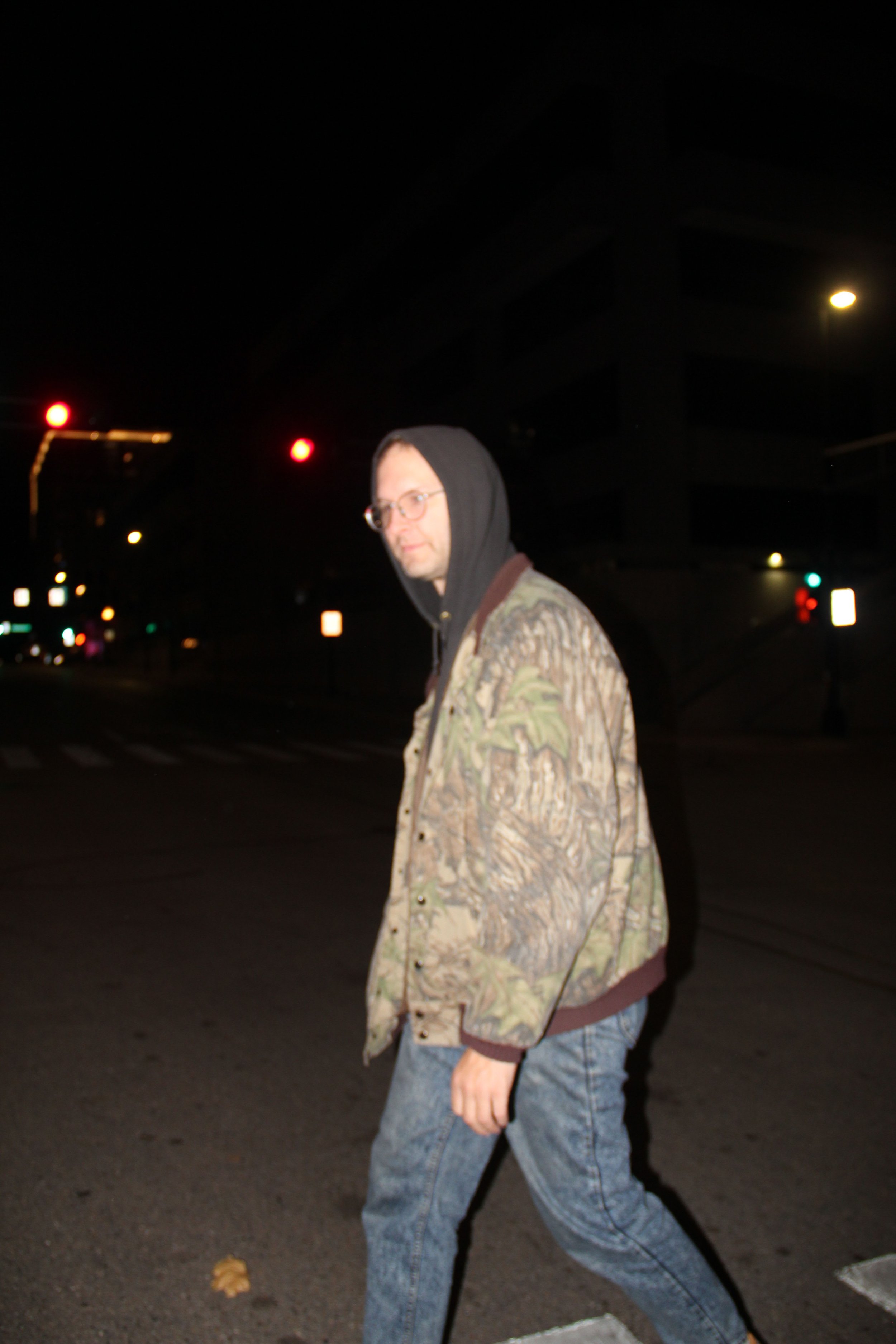The DRIVE Issue: Hotline TNT
WORDS BY IAN JOHNSON, PHOTOS BY CAMILA TRIMBERGER-RUIZ
Growing in the Midwest, random drives are a lifeline for the bored high school community. Grab your friends, pile them up in a car, give them a vague destination, and boom, begin your land cruise. This random drive was just like any other: we piled into my friend's old Jeep Patriot, set course for the county highway, laughed at stupid vanity plates, and shared some tunes. I had just begun listening to Weed, the Vancouver-based music project of Will Anderson and Kevin Doherty and needed to hear more. After a quick spin of the volume knob, “Set Me Back” came on and immediately blew the backseat chatter out of the window. Distorted riffs, furious drums, and angsty but airy vocals became the focal point of this random drive, until the backseat overpowered the blasting music and pointed out that the driver’s headbanging was distracting his driving. I understood; our taste in music till that point had been atmospheric Cocteau Twins songs or jangly Housemartins cuts and Weed’s uncut stonergaze was maybe inauspicious to the easy listening members of the backseat. I reluctantly handed over the aux cord to the disembodied and dark hand reaching over the console.
Since then, Weed disbanded, Will Anderson went on tour with Matt Berry and the Happy Diving crew, Hotline TNT formed, I moved to Madison, and Hotline TNT dropped their most accessible and polished record to date “Cartwheel.” A perfect mix of the jangly guitars the back seat loved while keeping the chaotic overdriven noise the front seat required. Despite this being their first release on Jack White’s Third Man Records, “Cartwheel” represents the final product of years spent polishing the Hotline TNT sound from the frantic shoegaze of early Hotline TNT eps into the noisy but ethereal indie pop of today. Lyrically, Anderson explores his interpersonal life, lamenting over love lost and drawing brief sketches of life at its most relatable; using snapchat filters and missing your friend’s house show. These sketches come together to form delicate macaroni mosaics of modern angst: hopeless romantics lost in the digital age and burned-out ex-rockers assimilating into dead-end jobs. It’s no surprise the album cover features a bootleg Charlie Brown shirt, another everyman character who just can’t seem to catch a break. Anderson writes for all of us who try to find something real in our increasingly artificial world.
Hotline TNT is an indie rock band from Brooklyn, NY which embraces harsh distortion just as much as Tom Petty-esque power pop structures. An integral part of the modern day “indiegaze” scene (Wednesday, TAGABOW), Hotline TNT offers their own unique sound to those who love both early My Bloody Valentine (you made me realize) and heartthrob classics Teenage Fanclub (Bandwagonesque).
A crucial piece of the Hotline TNT sound is their commitment to DIY culture. Over the years, they’ve become veterans of the Vancouver and Brooklyn local scenes, bringing the punk ethos with them anywhere they go. For Hotline TNT, this might look like playing cheap strat-copies from Japan or pushing a lone “Big Muff '' fuzz pedal and a backlined beer-soaked amp to their absolute limit. In a testament to this, Hotline TNT performed at Madison’s own Rigby Pub alongside local favorites Interlay and Mio Min Mio. The crowd, a sort of coming together for the isthmus hipsters of Willy Street and the 20-nothing campus punks, was an odd but beautiful reflection of the DIY ethos that Hotline TNT carries with them.
I had the opportunity to talk to Will Anderson and Matt Berry of Hotline TNT while they were in Idaho on the Northwestern leg of their US tour.
This interview has been edited for length and clarity.
How did working with Silicon Prairie influence you on the album?
Will: Yeah, I mean, I just liked the way Ian (Silicon Prairie) records. The Silicon Prairie albums always turn out really cool so I wanted to get his DNA imprinted onto the hotline sound. He definitely did a good job with it.
I was looking at your Spotify playlist you made for the new Cartwheel album and I saw a lot of really fun songs on there. You had “Motorbike” by Momma on there and we were talking earlier about working with their producer.
Will: Yeah, Aaron's really easy to work with and we had toured together as well so we had a nice relationship from that. I was kind of hearing those (Momma) songs a lot. Allegra sings on one of the songs on this album.
Not only do you make your own NBA fanzine (Ass N’ Up), you're also active on other social media. You're streaming on Instagram, you’ve had your own talk show, and sometimes you even livestream fortnight. You’ve described it as “one big media conglomerate.” So, even if all of it’s not involving the band directly, what do you think the importance of a social media presence is to an up-and-coming band?
Will: I like social media a lot. I think it's a lot of fun. Obviously, it's very toxic. As you know, most things on the internet are these days. I use Instagram and Twitch as a way to kind of express my creativity and you can just make it whatever you want. Some people use it to post infographics and express their political opinions, which I do to a small extent, but it's also just part of the entertainment of being a fan on the internet.
Matt Berry: I think that social media is pretty detrimental to our society as a whole, but as if you're gonna be in the entertainment industry to any extent; you play music and you want people to hear it, then you have to be a part of it. You might as well have fun with it. You might as well enjoy yourself and not get too caught up in the game of like “Oh, it's so bad. It's so shitty. And I hate it.” Instead, just you know, use it as a means to reach people if you can.
Will: Yeah, we all know it sucks. We’d all rather be doing other things, but that conversation is pointless. Yeah, so since it's here, you might as well use it. If they wanted to take your data, it’d already be gone.
Do you guys have any fond memories of the California scene when you both were on the Smoking Room label?
Matt Berry: When I was in my first band ever Happy Diving. Yeah. The reason why people ever found out about us was because Tony Molina put on for us in San Francisco. So, I'll always appreciate him for that, because no one really knew who we were until Tony Molina started talking about us, and then people seemed to take interest. I think that's kind of how we got out to the world.
Will: Smoking room goes, Sam is definitely one of my best friends. We've been close for a long time. We've had our ups and downs, but he's a kindred spirit. We work very closely in all of our music endeavors together. So yeah, he's one of my go to’s, for sure.
You've signed to Third Man Records, but I would say that your DIY practices haven't gone down at all. You're still playing smaller venues and continuously put in effort towards growing the scene. So, what's the importance of maintaining the DIY practices and ethos while also achieving success?
Will: As the band has grown, it gets a little bit harder to play those kinds of (DIY) shows, in all the cities we want to. We have a tour that we're planning for this March, and certain cities that I would love to play DIY shows in like Minneapolis and Vancouver, don’t have DIY spaces operating that are big enough that we can play. It's at the point where it's a little bit inappropriate to stay in the DIY world forever. Because, if the band is growing, and so many people want to see it, and a lot of people are involved, you kind of just have to move to a more official venue. But obviously, you can probably tell that the DIY world and ethos is very important to me, and always will be. So, I’m trying to keep a foot in both camps as long as possible. And if tomorrow Third Man dropped us, we would just go back to whatever we did before; self-release the records and all that shit.
On “Out of Town,” you sing “sounds too easy; played through Peavey,” which I thought was a cool reference to the DIY scene as I’ve seen countless Peavey amps in basements.
Will: This band is always about playing whatever's around. That lyric is about a guitar amp that was in this girl's apartment that I was seeing at the time. She just had it and we were playing the guitar together.
You've mentioned before you like to keep things simple. At the Rigby, you just came up with a Big Muff and maybe one or two other pedals. You’ve also said that you like to make a majority of things on GarageBand. So, what's your songwriting process like and what's your advice to better bedroom musicians just starting out?
Will: I'm not a very technical player, but as far as songwriting goes, I've been at it for a long time. And in my opinion, if you go back to the early stuff, I think I've come a long way. But you know, people like the old songs too. I usually start with some guitar chords and try to mess around with them until I find a chord progression that sounds pretty or interesting. Then I’ll work in the vocal melodies from there. Everyone's got their own style. My advice is if it doesn't sound the way you want it to sound, just keep tweaking it until it sounds the way you want. Just don’t give up.




